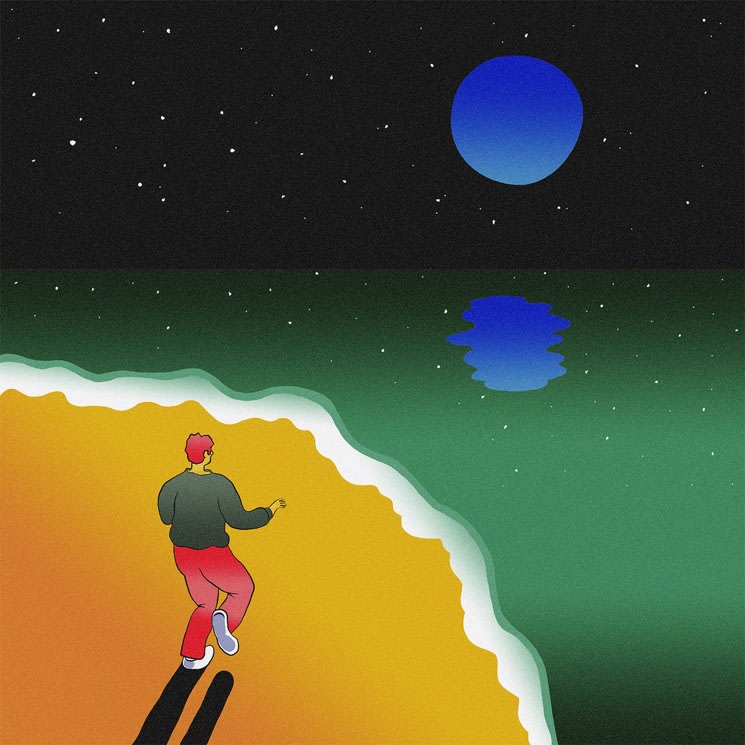Why is it so difficult for folk artists to expand their arrangements with larger and more sonically disparate instrumental palettes? Often, on follow-up records, folk artists that succeed with sparse guitar-and-vocal arrangements find themselves incorporating so many new sounds that their unique, character-rich vocal deliveries and heady lyrics drown under the weight of a wall of sound.
Toronto's Luka Kuplowsky rarely has this problem. Since his third full-length record, 2017's What Kind of Animal — released under prior mononym LUKA — he has successfully expanded upon the simple singer-songwriter arrangements found on his earlier releases. A record with such tasteful flourishes of musicianship is a rare thing, but at last we come to this year's Stardust.
The album blends Luka's smooth baritone with joyful bursts of saxophone, flute, trumpet and strings that dance around each other in unison, giving each element that all-important room to breathe. Not once are lyrics buried beneath seven musicians hammering the same chord, and Kuplowsky reads the room with delicate tonal shifts in his singing, aided by the warm additional vocals provided here by Felicity Williams and Robin Dann.
At times, Stardust lands on a sauntering Western feel, like on album opener "Do I Have to Be" and closer "Be New." Mainly, the album settles into a sort of lush and slinky take on folk rock, with saxophone fills and warm keys. Some tracks lyrically betray this atmosphere, like the stellar dystopia of "City By My Window." Here, a fretless bass riff skitters around loose, shuffling drums to contrast the repeated line, "Perfection is a noose," which itself slowly begins to fight against increasingly chaotic instrumentation. One imagines Luka, imprisoned in some concrete condominium tower, softly crooning to the grimy urban sprawl from his windowsill. The album's single, "Positive Push," is also its most outwardly "rock" track, using stuttering guitar and McCartney-esque bass riffing to create a danceable, tense drive. Kuplowsky goes for a more biting vocal tone here, rising far above the wispy baritone here with playful nasality.
These arrangements can sometimes repeat themselves. A few songs into the record, these saxophone and string flourishes reappear with diminishing returns. This seems a shame when explosive surprises exist in small pockets all over these songs, like the bizarro jazz-rock guitar solo that caps the closing track. Luka Kuplowsky's arrangements are full and warm, but repeated listens may lead to listener complacency.
The minimal hard edges and risks that do show up bely an artist with an ear for the weird. His moment to expand upon these more ear-catching ideas may still be yet to come.
(Next Door)Toronto's Luka Kuplowsky rarely has this problem. Since his third full-length record, 2017's What Kind of Animal — released under prior mononym LUKA — he has successfully expanded upon the simple singer-songwriter arrangements found on his earlier releases. A record with such tasteful flourishes of musicianship is a rare thing, but at last we come to this year's Stardust.
The album blends Luka's smooth baritone with joyful bursts of saxophone, flute, trumpet and strings that dance around each other in unison, giving each element that all-important room to breathe. Not once are lyrics buried beneath seven musicians hammering the same chord, and Kuplowsky reads the room with delicate tonal shifts in his singing, aided by the warm additional vocals provided here by Felicity Williams and Robin Dann.
At times, Stardust lands on a sauntering Western feel, like on album opener "Do I Have to Be" and closer "Be New." Mainly, the album settles into a sort of lush and slinky take on folk rock, with saxophone fills and warm keys. Some tracks lyrically betray this atmosphere, like the stellar dystopia of "City By My Window." Here, a fretless bass riff skitters around loose, shuffling drums to contrast the repeated line, "Perfection is a noose," which itself slowly begins to fight against increasingly chaotic instrumentation. One imagines Luka, imprisoned in some concrete condominium tower, softly crooning to the grimy urban sprawl from his windowsill. The album's single, "Positive Push," is also its most outwardly "rock" track, using stuttering guitar and McCartney-esque bass riffing to create a danceable, tense drive. Kuplowsky goes for a more biting vocal tone here, rising far above the wispy baritone here with playful nasality.
These arrangements can sometimes repeat themselves. A few songs into the record, these saxophone and string flourishes reappear with diminishing returns. This seems a shame when explosive surprises exist in small pockets all over these songs, like the bizarro jazz-rock guitar solo that caps the closing track. Luka Kuplowsky's arrangements are full and warm, but repeated listens may lead to listener complacency.
The minimal hard edges and risks that do show up bely an artist with an ear for the weird. His moment to expand upon these more ear-catching ideas may still be yet to come.
